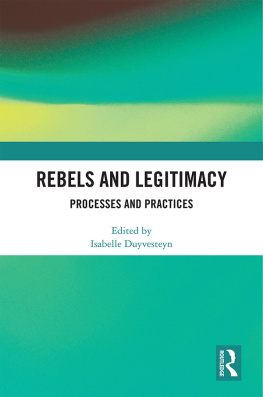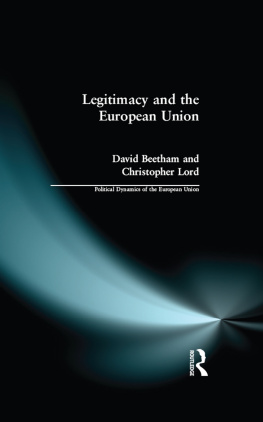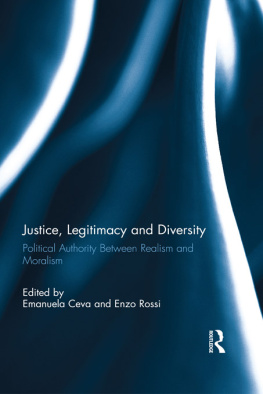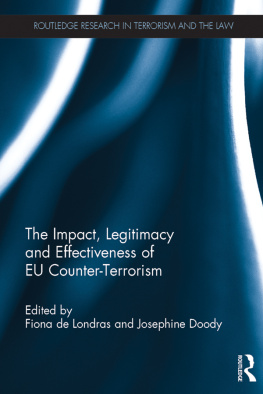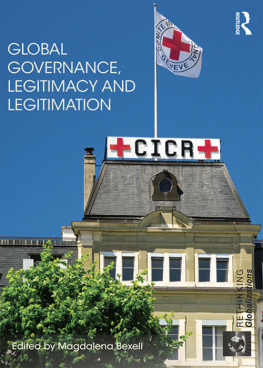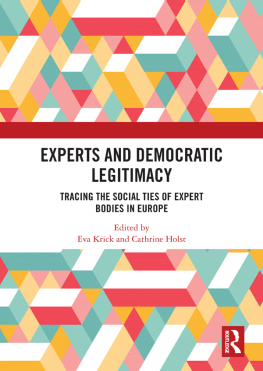Vivien A. Schmidt
Oxford University Press is a department of the University of Oxford. It furthers the Universitys objective of excellence in research, scholarship, and education by publishing worldwide. Oxford is a registered trade mark of Oxford University Press in the UK and in certain other countries
Vivien A. Schmidt 2020
All rights reserved. No part of this publication may be reproduced, stored in a retrieval system, or transmitted, in any form or by any means, without the prior permission in writing of Oxford University Press, or as expressly permitted by law, by licence or under terms agreed with the appropriate reprographics rights organization. Enquiries concerning reproduction outside the scope of the above should be sent to the Rights Department, Oxford University Press, at the address above
Clays Ltd, Elcograf S.p.A.
Links to third party websites are provided by Oxford in good faith and for information only. Oxford disclaims any responsibility for the materials contained in any third party website referenced in this work.cover photo @copyright Vivien Schmidt
Preface and Acknowledgements
Prior to the Covid-19 virus crisis, Europes sovereign debt crisis had remained arguably the worst of the European Union s many crises of the past decade. The health pandemic now rivals the Eurozone crisis in terms of its potentially crippling long term effects. But in this new context, there is all the more reason to look to and learn from the Eurozone crisis, which has not just been a crisis of economics or of politics but also of legitimacy. The EU took the wrong course in 2010 in responding to the Eurozone crisis. Rather than bold initiatives, EU actors ended up governing by the rules and ruling by the numbers, with a focus on austerity and structural reform. As a result, the Eurozone suffered deteriorating economic performance while the politics became increasingly toxic, as mainstream parties declined and populist challenger parties prospered.
Fortunately, the story does not stop here. Having recognized that things had gone awfully wrong, European leaders and officials began to change Eurozone governance slowly and incrementally after the first couple of years, by reinterpreting the rules and recalibrating the numbers. But because EU actors reinterpreted the rules by stealth, that is, without admitting it to citizens or even, often, to one another, legitimacy remained in question. Fundamental flaws were not fixed, as suboptimal rules continued to hamper economic growth while feeding populist discontents. And even though by 2015 most EU actors began to acknowledge their rules reinterpretations, the harm had been done.
This book identifies three components of legitimacy: Output legitimacy is related to policy effectiveness and performance, input to political representation and responsiveness, and throughput to the quality of the governance processes. In Europes (euro) crisis of legitimacy, EU actors initially assumed that all they needed to do was to reinforce the rules (throughput) to guarantee good policy performance (output) and citizen acceptance (input), only to find that performance worsened along with citizens attitudes. But subsequently, by reinterpreting the rules without admitting it, although (output) performance improved, perceptions of the quality of the (throughput) processes plummeted while the (input) politics continued to worsen.
The book seeks to deepen our understanding of a crisis that has threatened not just the economic and political stability of Europe but also the very project of European integration. What distinguishes this book from many others on the Eurozone crisis is that it uses the lens of democratic theory to examine the crisis from vantage points that analysts tend to deal with separately in different fieldspolitical economy, politics, and governanceand at different levelsEU and national. The book concludes with suggestions on how to move beyond the crisis by continuing to deepen Eurozone integration while generating a more decentralized and democratized Eurozone governance. And because it appears at a time when a new Commission has recently taken over, with pledges to rethink the rules of the Eurozone while restarting growth and responding to citizen concerns, hopefully the book can make some modest contribution to its deliberations.
*****
This book has its origins in a part-time, yearlong research fellowship on legitimacy in the Eurozone crisis at the Commissionspecifically, the Directorate General for Economic and Financial Affairs (DG ECFIN)in 201415. The time spent at DG ECFIN was extremely enlightening, and reinforced my sense of how important it is to understand institutions from the inside as much as from the outside. Special thanks go to Director-General Marco Buti as well as to many of his colleagues at the time, including especially Anne Bucher as well as Oskar Andruszkiewicz, Moreno Bertoldi, Pieter Bouwen, Stefan Ciobanu, Servass Deroose, Elena Flores, Antonio de Lecea, Outi Slotboom, Benedicta Marzinotto, Karl Pichelmann, Eric Ruscher, and Marcin Zogala.
The book builds on my final report for the DG ECFIN fellowship. Finally, my home institution, Boston University, was generous enough to make it possible for me to pursue my research through sabbatical leaves in 2010, in spring 2017, and in spring 2018. I am grateful to all these generous patrons for having given me the time, place, and space to think, read, and ultimately write this book, as well as to all the collaborators on these many projects who provided inspiration along with immensely rewarding intellectual exchanges.
I owe a great deal to very many other people as well, to whom I apologize in advance for any inadvertent omissions. I conducted countless interviews and engaged in innumerable conversations with officials and concerned parties in Brussels and in national capitals, in private meetings and/or public conferences across Europe. Among the many individuals in and around EU institutions with whom I discussed the ins and outs of the Eurozone crisis, and from whom I learned a great deal, beyond those already mentioned, special thanks go to Joaquin Almunia, Lorenzo Bini Smaghi, Jim Cloos, Richard Corbett, Stefaan De Rynck, Anna Diamantopoulou, Kristalina Georgieva, Roberto Gualtieri, Emily OReilly, Aidan OSullivan, Jean-Claude Piris, Hannes Swoboda, Luuk Van Middelaar, Shahin Valle, and Thomas Wieser. I am also grateful to the many Commission and Council officials interviewed in the context of the ENLIGHTEN grant who must remain anonymous. In addition, of the many close observers in think-tanks and academe and elsewhere with whom I spoke, special mention goes to Cinzia Alcide, Giuliano Amato, Carlo Bastasin, Richard Bellamy, Mark Blyth, Benjamin Braun, Furio Cerutti, Stefan Collignon, Roland Erne, Sergio Fabbrini, Maurizio Ferrera, Valeria Ferroni, Ulrike Gurot, Paolo Guerrieri, Leo Hoffmann-Axthelm, Erik Jones, Hans-Helmut Kotz, Sandra Krger, Brigid Laffan, Deborah Mabbett, Matthias Matthijs, Marcello Messori, Stefano Micossi, Ashoka Mody, Giovanni Moro, Kalypso Nicoladis, Federico Lorenzo Pace, Romano Prodi, Stefano Sacchi, Andr Sapir, Waltraud Schelkle, Hans-Werner Sinn, Loukas Tsoukalis, Paul Tucker, and Pieter de Wilde.


